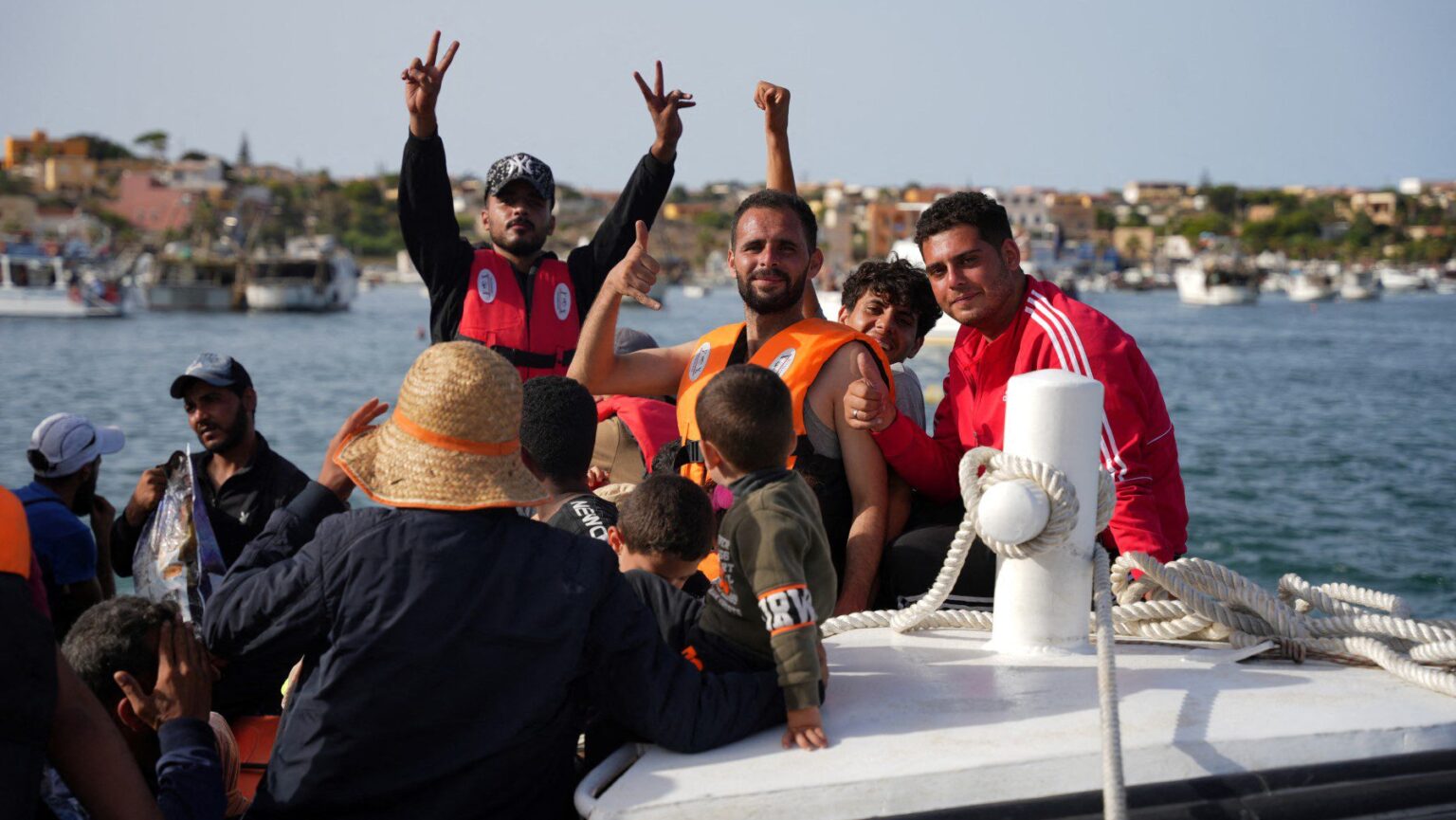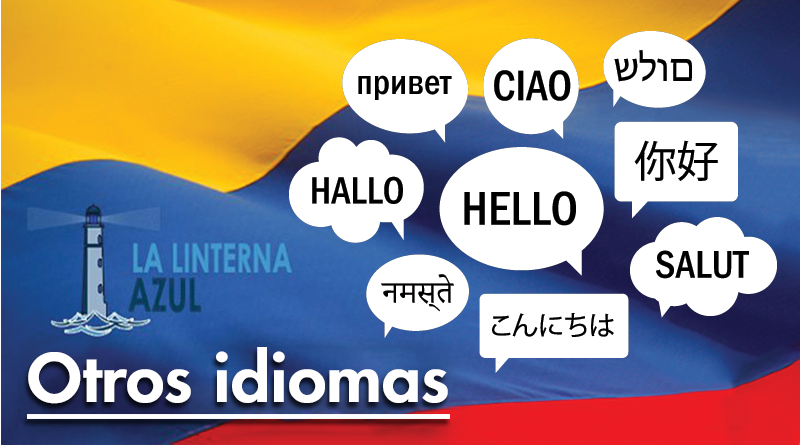April 10, 2024 | The European Conservative | By Zoltán Kottász
“Take in your share of migrants or pay” scheme will do nothing but increase human smuggling and illegal migration.

The European Parliament narrowly approved the EU’s highly controversial and hotly debated Migration and Asylum Pact on Wednesday, April 10th. The pact, which aims to enhance the EU’s response to the ongoing mass-migration crisis, was approved by only a thin majority of lawmakers, signalling the deep political fault lines surrounding the matter.
Conservative and right-wing parties warned that the agreement would infringe on nation states’ sovereignty and would be yet another letter of invitation to migrants wanting to reach the continent. Given that migration is a hot-button issue in the upcoming election, with populist parties surging across the bloc, the only perceivable silver lining is that force-feeding European citizens this piece of legislation—particularly the Orwellian-sounding ‘mandatory solidarity mechanism’—could have the potential to increase the odds for a more conservative, Eurosceptic parliament come June.
The pact’s ten interlinked pieces of legislation were adopted by the European Parliament on Wednesday, with the centre-left, centre-right, and liberal groups working together to counteract the dissenting right-wing and left-wing parties—who fought it for markedly different reasons.
What is the Asylum and Migration Pact?
The pact is supposed to be the answer to the waves of illegal migration facing Europe and has been on the agenda since 2020 when the European Commission first introduced it. More than 1.1 million people claimed asylum last year in the EU, the highest such number since the peak of the migration crisis in 2015-16. Central European nations, like Hungary and Poland, and many conservative parties that have called for stricter immigration policies have rejected the pact because it seeks to manage migration instead of attempting to put a stop to it.
Included in the pact is a ‘mandatory solidarity mechanism’—forcing countries to choose between accepting migrants or paying hefty sums into a common fund. Member states would have to pay a compensation of €20,000 per every migrant they reject or provide other material or personnel contributions to frontline countries. At a point in time when Europe and its citizens are already struggling financially, this may mean presenting member states with a Hobson’s choice.
In a crisis—which Europe has basically been in since 2015—“a given member state may have to contribute more than its fair share,” meaning they would be forced to accommodate migrants and examine their asylum claims. Critics of the migration pact have argued that the EU will continue to be in constant ‘crisis mode’ anyway, because asylum numbers have been on an upward trajectory for the past few years, and it is impossible to predict how many more will try to come to Europe.
An included attempt to conduct more effective checks on migrants won the approval even of conservative parties that voted against the rest of the pact: from six years old onwards, migrants will undergo identity, health and security checks, and have biometric readings of their faces and fingerprints recorded in a central EU database. This would make it more difficult for migrants to “play the asylum lottery.”
Jorge Buxadé Villalba of the Spanish conservative VOX party praised the database element of the pact, saying that taking biometric data will prove to be useful against migrants who want to abuse the system and try to seek asylum in multiple countries. He said that the member parties of the European Conservatives and Reformists (ECR) group had voted against all other aspects of the pact because they are harmful to Europe.
The pact aims to rapidly return unapproved asylum seekers to their countries of origin. Migrants whose asylum applications are unlikely to be approved or who are deemed a security threat would be prevented from entering the EU and held in detention centres at the border. The pact envisages asylum applications to be assessed within three months, but migrants could remain in detention centres for another three months if their asylum claim is rejected. Processing asylum claims within three months hardly seems realistic: in 2022, the average processing time was 10 months in Luxembourg; in Denmark in 2019, it was 19 months—and the influx of migrants has only increased since.
Majority support and minority opposition
The European Parliament’s three largest groups—the centre-right European People’s Party (EPP), the Socialists, and the liberal Renew—overall backed the deal.
Swedish MEP Tomas Tobé of the EPP argued during Wednesday’s parliamentary debate that the deal allows the EU to take back control over its common borders and give protection to real asylum seekers, not illegal migrants. Spanish Socialist Juan Fernando López Aguilar said the pact would finally create a common EU policy on immigration and a legal framework, instead of member states relying on their own solutions. Liberal Dutch MEP Sophie in ’t Veld stressed that the deal would bring an end to years of chaos and inhumane circumstances, and the European Commission would be able to enforce the law and be tough with member states that don’t implement the rules. Appearing at the parliamentary debate, European Commissioner for Home Affairs Ylva Johansson said the pact will not only protect people who are in need of protection but will manage migration in an orderly way.
However, that is exactly what right-wing parties in the European Parliament want to avoid: managing the crisis instead of stopping migration. Putting bandaids on a bleed that needs to be stopped and forcing nations that prefer a restrictive immigration policy to bear the brunt of policies that were jammed down their throats against their objections is unlikely to endear Eurocrats to the European citizenry.
MEP Jean-Paul Garraud of the French national-conservative Rassemblement National (National Rally) told a press conference on Wednesday that the pact does not aim to prevent illegal immigration but only to manage it, and EU member states would no longer have control over their migration policies, therefore his party rejected most of the laws that make up the pact:
We denounce in particular the compulsory distribution of migrants on European soil and the financial sanction of €20,000 per refused migrant.
MEP Balázs Hidvéghi of the ruling conservative Hungarian Fidesz party said the migration pact addresses the problem of migration in the same way as European lawmakers have tried to address it before: with a mandatory quota system and a punishment for member states that are not willing to accept migrants. This concept has already failed once, and will do so again. The pact infringes upon national sovereignty and undermines member states’ security, he added.
Harald Vilimsky of the Austrian right-wing FPÖ party says he and his colleagues also voted against the pact because it does not solve the problem of migration, and that there is no need for Europe to pursue an open border policy.
Patryk Jaki of the conservative Polish Law and Justice party (PiS) warned that the pact amounts to nothing more than an invitation to migrants to come to Europe, pointing out that people smugglers will continue to send migrants to sea, knowing fully well that Europe will accept them. Jaki said voters in the European elections are now the ones who have the power to make a change by voting for parties who oppose Brussels’ migration policies.
Lawmakers on the left side of the political spectrum also rejected the pact—but from their point of view, because it doesn’t go far enough in protecting asylum seekers.
Malin Björk of the Swedish left-wing Vänsterpartiet said during the debate that she and her colleagues from the European Left are highly critical of the agreement because she said putting migrants into detention for long periods of time would expose them to even more violence, dehumanisation, and humiliation. She said the individual right to seek asylum is being attacked by implementing the pact.
For the pact to be finally adopted, the measures must be approved by the European Council (representatives of the governments of member states) with a qualified majority vote, meaning individual countries will not be able to veto. The pact would then come into force in 2026.
Zoltán Kottász is a journalist for The European Conservative, based in Brussels. He worked for many years as a journalist and as the editor of the foreign desk at the Hungarian daily, Magyar Nemzet. He focuses primarily on European politics.

